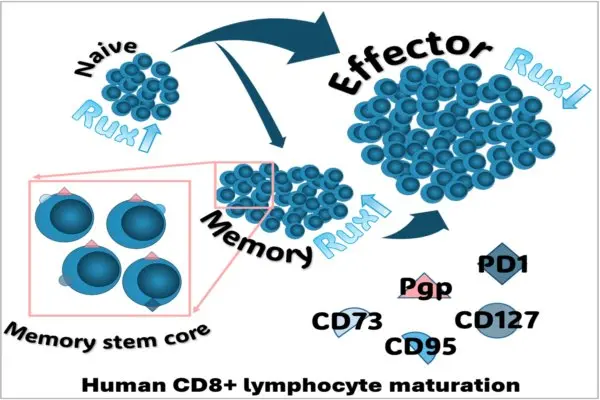
Kipchumba Biwott, Zsolt Bacso, and their colleagues at the University of Debrecen studied the expression of the P-glycoprotein (Pgp/ABCB1) multidrug transporter in human CD8+ T lymphocytes during their differentiation.
The study examined how cytotoxic T lymphocytes (CTLs), a crucial component of the adaptive immune system, develop and sustain memory to fight infections and cancer. Using a specialized cell culture model, researchers tracked CTL maturation and identified key subsets, including naïve, stem-like memory, memory, and effector cells. They found that Pgp, a protein linked to drug resistance, is highly expressed in long-lived memory T cells, indicating their resilience. The JAK1/2 inhibitor ruxolitinib delayed CTL maturation and preserved small pools of Pgp-expressing memory cells.
These findings suggest that Pgp could serve as a marker for persistent memory cells and offer valuable insights for improving immunity during chemotherapy, vaccinations, and adaptive immunotherapy. The results of this study were published in Biomedicine & Pharmacotherapy (Elsevier).
DOI: 10.1016/j.biopha.2024.117780
Link